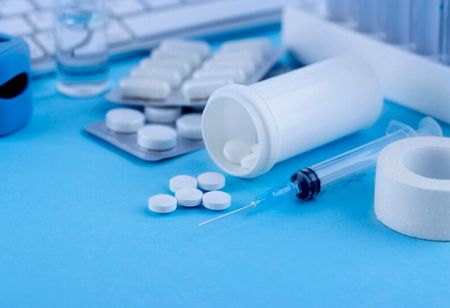Hridkamal Roy, Editor, India Pharma Outlook

Physicians have blamed lack of standardization as the cause for not prescribing generics to patients. Sources from the medical community informed India Pharma Outlook that the quality and efficacy of generic medicines are the primary reasons why physicians across the country do not feel confident about prescribing them. They have indicated to the ongoing inefficiencies and corruption in government departments as one of the causes for this malfunction.
“We have tried prescribing generics to patients but the medicines did not have the desired effect on patient’s health. This is the reason why we again had to prescribe branded drugs which seemed to work fine and provide solution to patients”, mentioned a renowned general physician from Kolkata, WB to India Pharma Outlook.
On the other hand, the directives provided by the Indian Medical Association (IMA) way back in 2017 about the prescribing generic names are not being followed by majority of the physicians in the country. Worth mentioning that not following these directives may lead to strict disciplinary actions against physicians and may also result in cancellation of license as had been stated by the IMA.
It is utterly shameful that despite India being called as the “Pharmacy of the World” and being one of the largest exporters of generic medicines in the world, the native population is subjected to increased cost of healthcare without any clear access or knowledge about cost effective medications. Various aspects can be highlighted in this regard.
We have found out various reasons why physicians are against prescribing generics. Lack of standardization and inefficacy being the primary reasons, there are other aspects as well that require honest intervention. The revised UCPMP guidelines that have been recently rolled out by the government have special clauses regarding gifts, travel and monetary benefits. The clauses state that no pharmaceutical company is at any position to offer the above to physicians for marketing purposes. In this regard we spoke with veterans from the medical community who are confident about the corruption that is taking place between physicians and the pharmaceutical sector which is polluting the healthcare system from the core.
“Say, 100 families avail sponsored international trips from a products manufacturer. One can imagine the expense per head for one such trip and can calculate an overall amount of capital spending done by the manufacturer. Now, it is not impossible to determine the amount of profits the manufacturer is making to spend on a project like this”, mentioned sources.
Deep rooted corruption in government bodies are one of the reasons why majority of the generic drugs are not getting accepted by the medical communities. Research has revealed that bribery is an ongoing process in this sector which is done for the purpose of validating drug samples. This can be registered at various steps of the system and are responsible for distributing substandard products in the market. However, for the generic sources of medicine like the PMBJP and start-ups like Generic Aadhar to gain attraction in the market, it is important that the medical community prescribes them.
“The deficits are state wise. In WB we can see state government’s intervention and validating drug samples of manufacturers. These products sell in the market without any proper accreditation. Not only in pharmaceutical, this is also application for the nutraceuticals industry”, stated an orthopedic surgeon from WB.
Perhaps one of the biggest factors that we could find out which is application at different stages of the industry. It is within the nature of the consumer in India to exactly do what a physician asks them to. In order to understand the difference between generic and branded, consumers need to be educated accordingly by medical communities. Currently, in various segments throughout the healthcare sector of the country, there is an acute shortage of good physicians. These sectors include radiology, oncology, cardiology and few others.
“If a person is forced to see 200-300 patients in a single day, it is impossible of a physician to provide consumers with complete education. There is huge lack in infrastructure in this case which needs to be solved”, mentioned sources.
The lack of education has also been observed at the pharmacy level. In order to get a license for a pharmacy in India, there are specific criteria that need to be fulfilled. However, in various parts of the country and especially in rural areas, pharmacists do not have any actual knowledge of medicines. Amidst this, it solely rests on the shoulder of the physicians to direct the consumer in the right way.
With many native manufacturers taking initiatives on creating new formulations and investing on developing good generic versions, one can hope that the generics market will get a boost in the coming years.